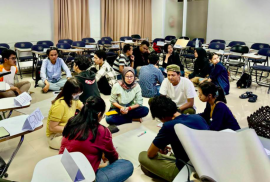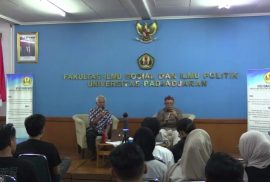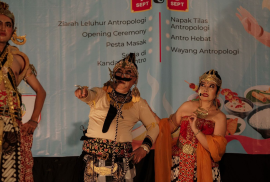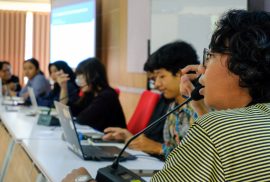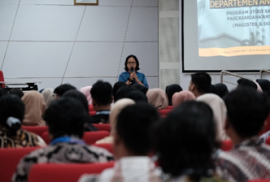Yogyakarta, 10/3/2025 – The Department of Anthropology is once again offering a special opportunity for its students by hosting joint classes with Professor Emeritus Sabine Troeger from the University of Bonn. This time, Professor Sabine is introducing two new courses:
- “Healthy Environment in the Era of Anthropocene: Human-Nature Relation, When Humans Have Become the Dominant Force Shaping Earth’s Bio-Physical Composition and Processes”
- “The Good Tourist—Images and Interpretation on the Side of the Visited Agents, Communities, and Individuals in Jogja Environments.”
Just like previous courses, these will follow a block system, with alternating schedules between the two classes. Running from February to April, the classes are open to both undergraduate and graduate students of Anthropology. More than just theoretical discussions, the program also includes a four-day fieldwork experience, where students will apply the PRA (Participatory, Reflection, and Action) method in real-world settings.
In the first half of the course, students will dive into PRA methodology and explore Bourdieu’s theory of habitus, which serves as a key foundation in community empowerment practices. The sessions are designed to be interactive, with Professor Sabine constantly encouraging students to actively engage in discussions and share their perspectives.
As the course progresses into the second half, things get even more dynamic. Learning moves beyond the classroom, and students head out into the field. Over four full days, they will interact directly with local communities, observe social dynamics firsthand, and put the PRA method into practice in real-life situations. This hands-on experience not only deepens their understanding but also offers valuable reflection on how theory and practice can come together to create sustainable empowerment initiatives.
This class is more than just an academic space—it is a platform for broadening perspectives and critical reflection. By combining theory, practice, and a human-centered approach, this course provides an invaluable learning experience for every participant.
[Public Relations of Cultural Anthropology, Daiva Keefe Kalimasadha]

